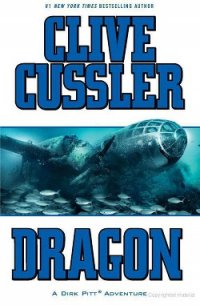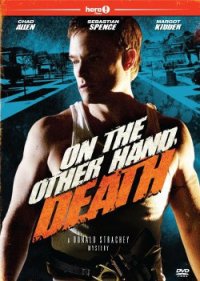Book of the Samurai - Hagakure (полные книги TXT) 📗
A rifle ball hitting the water will ricochet. It is said that if one marks it with a knife or dents it with his teeth, it will pass through the water. Moreover, when the master is hunting or some such thing, if one marks the ball with a sign, it will come in handy in case of a mishap.
When Master Owari, Master Kit and Master Mite were around the age of ten, one day Lord Ieyasu was with them in the garden and knocked down a big wasps' nest. A great number of wasps flew out, and Master Owari and Master Kit were frightened and ran away. But Master Mite picked off the wasps that were on his face, threw them away one by one, and did not run away.
Another time, when Lord Ieyasu was roasting a great number of chestnuts in a large hearth, he invited the boys to join him. When the chestnuts got sufficiently hot, they all started to pop out at once. Two of the boys were frightened and moved away. Master Mite, however, not the least bit frightened, picked up the ones that had popped out and threw them back into the hearth.
In order to study medicine Eguchi Than went to old Yoshida lchian's place in the Bancho area of Edo. At that time, there was in the neighborhood a teacher of swordsmanship, to whom he used to go for training from time to time. There was a ronin pupil there who one day came up to toan and said as a parting remark, "I am now going to realize a longcherished ambition, one I have had for many years. I am informing you of this because you have always been friendly to me." Then he walked away. Than felt uneasy about this, and when he followed him, he could see a man wearing a braided hat coming from the opposite direction.
Now the sword teacher was about eight or ten yards ahead of the ronin, and in passing by the man with the hat he soundly struck the man's scabbard with his own. When the man looked around, the ronin knocked off' the man's hat and announced in a loud voice that his purpose was revenge. With the man's attention being distracted by the confusion, he was easily cut down. A tremendous amount of congratulations came from the nearby mansions and townhouses. It is said that they even brought out money for him. This was a favorite story of Toan's.
Once when the priest Ungo of Matsushima was passing through the mountains at night, he was set upon by mountain bandits. Ungo said, "I am a man of this area, not a pilgrim. I have no money at all, but you can have these clothes if you like. Please spare my life."
The bandits said, "Well, our efforts have been in vain. We don't need anything like clothes," and passed on. They had gone about two hundred yards when Ungo turned back and called to them, "I have broken the commandment against lying. In my confusion I forgot that I had one piece of silver in my moneybag. I am truly regretful I said that I had nothing at all. I have it here now, so please take it." The mountain bandits were deeply impressed, cut off their hair right there, and became his disciples.
In Edo four or five hatamoto gathered together one night for a game of go. At one point one of them got up to go to the toilet, and while he was gone an argument broke out. One man was cut down, the lights were extinguished, and the place was in an uproar. When the man came running back, he yelled, "Everybody calm down I This is really over nothing at all. Put the lamps back on and let me handle this.'' After the lamps had been relighted and everyone had calmed down, the man suddenly struck off the head of the other man involved in the argument. He then said, "My luck as a samurai having run out, I was not present at the fight. If this were seen as cowardice, I would be ordered to commit seppuku. Even if that didn't happen, I would have no excuse if it were said that I had fled to the toilet, and I would still have no recourse other than seppuku. I have done this thing because I thought I would die having cut down an adversary rather than die having shamed myself alone." When the shogun heard of this matter, he praised the man.
Once a group of ten blind masseuses were traveling together in the mountains, and when they began to pass along the top of a precipice, they all became very cautious, their legs shook, and they were in general struck with terror. Just then the leading man stumbled and fell of the cliff. Those that were left all wailed, "Ahh, ahh I How piteous!" But the masseuse who had fallen veiled up from below, "Don't be afraid. Although I fell, it was nothing. I am now rather at ease. Before falling I kept thinking 'What will I do if I fall?' and there was no end to my anxiety. But now I've settled down. If the rest of you want to be at ease, fall quickly!''
Hojo Awa no kami once gathered together his disciples in the martial arts and called in a physiognomist, who was popular in Edo at the time, to have him determine whether they were brave men or cowards. He had them see the man one by one, telling them, "If he determines 'bravery,' you should strive all the more. If it is 'cowardice,' you should strive by throwing away your life. It's something that you're born with, so there's no shame in it." Hirose Denzaemon was then about twelve or thirteen years old. When he sat down in front of the physiognomist, he said in a bristling voice, ''if you read cowardice in me, I'll cut you down with a single blow!"
When there is something to be said, it is better if it is said right away. If it is said later, it will sound like an excuse. Moreover, it is occasionally good to really overwhelm your opponent. Also, in addition to having spoken sufficiently it is the highest sort of victory to teach your opponent some- thing that will be to his benefit. This is in accordance with the Way.
The priest Ryoi said: The samurai of old were mortified by the idea of dying in bed; they hoped only to die on the battlefield. A priest, too, will be unable to fulfill the Way unless he is of this disposition. The man who shuts himself away and avoids the company of men is a coward. Only evil thoughts allow one to imagine that something good can be done by shutting oneself away. For even if one does some good thing by shutting himself away, he will be unable to keep the way open for future generations by promulgating the clan traditions.
Takeda Shingen's retainer, Amari Bizen no kami, was killed in action and his son, Tozo, at the age of eighteen took over his father's position as an armed horseman attached to a general. Once a certain man in his group received a deep wound, and since the blood would not clot, Tozo ordered him to drink the feces of a red-haired horse mixed with water. The wounded man said, "Life is dear to me. How can I drink horse feces?' Tozo heard this and said, "What an admirably brave warrior! What you say is reasonable. However, the basic meaning of loyalty requires us to preserve our lives and gain victory for our master on the battlefield. Well, then, I'll drink some for you.'' Then he drank some himself and banded over the cup to the man who took the medicine gratefully and recovered.



